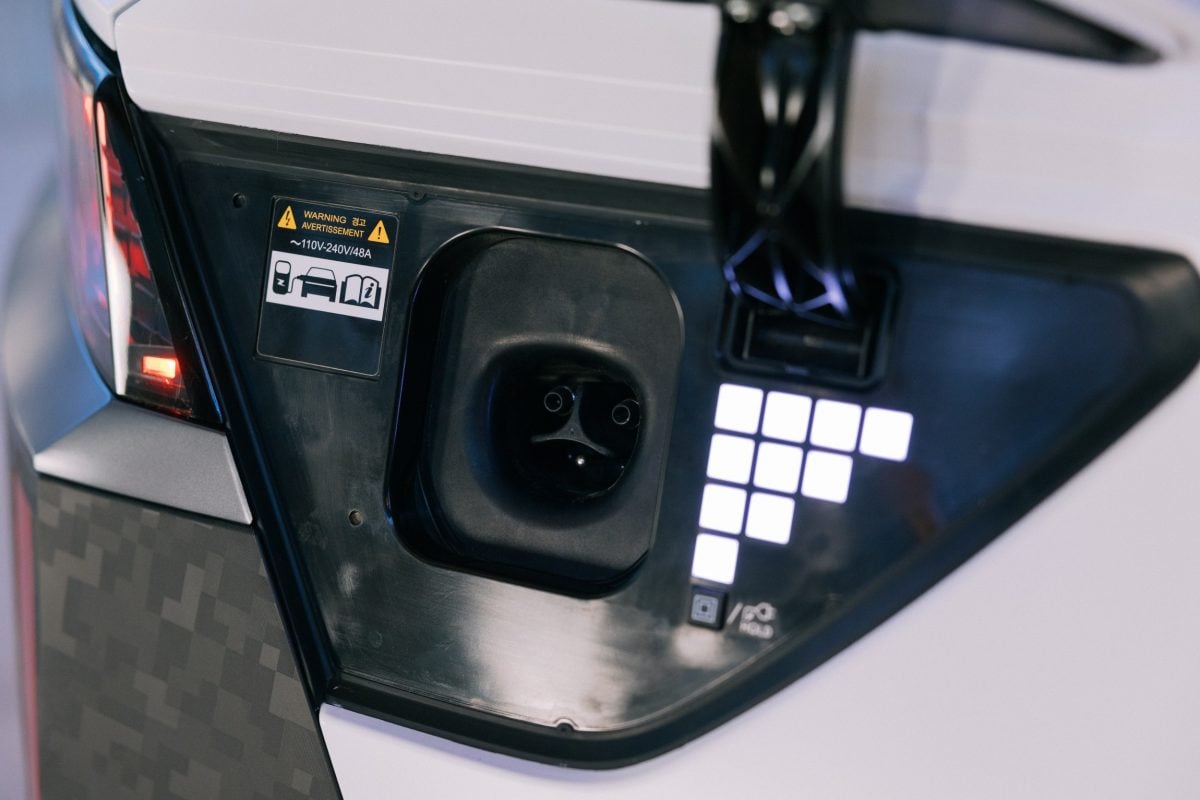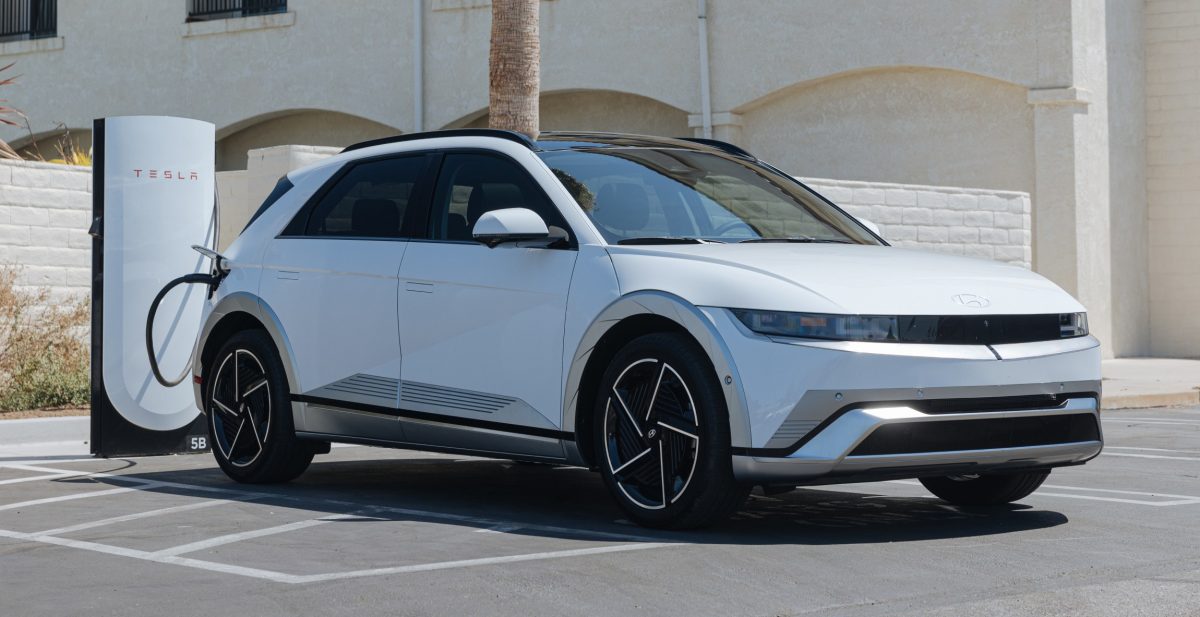Hyundai announced a significant update to their popular Ioniq 5 crossover SUV. The 2025 model year Ioniq 5 is a facelifted mid-cycle refresh that builds on an already capable EV.
The batteries are larger (58.0 to 63.0 kWh and 77.4 to 84 kWh), the interiors are updated, there is a new XRT rugged trim, and the cars for the North American market will be rolling off a US-based assembly line. But the biggest deal about this car is that it’s the first non-Tesla EV that comes from the factory with a NACS (Tesla) port for charging. No adapters will be required to access the largest and most reliable charging network in North America, aka the Tesla Supercharger station.
We saw this coming last year when all the major car makers announced their intentions to transition from CCS1 to NACS in North America to align to a single connector, and we’re finally seeing cars beginning to ship.
The NACS-equipped Ioniq 5 will still come with a CCS-to-NACS adapter so that drivers will have the option to use any charging station. But this moment feels like a turning point toward an adapter-free future where we can all agree on a single standard for charging all electric cars.
Another reason this is significant is that a NACS-equipped Ioniq 5 has a much better chance at conquesting and stealing sales from Tesla. For a long time, a Tesla was a default choice for EVs because of the strength of the Supercharger network. Long-distance travel in non-Tesla EVs was impractical or simply not possible in certain parts of North America because of lackluster CCS infrastructure.
The old Ioniq 5 was already a great car for DC fast charging because it maintained 200+ kW well past 50%, and the new car must be even better. From my experience, the Model Y long-range will dip below 150 kW after just 40%. So it is possible that these new Ioniq 5s will have even better charging curves, and recover range at Superchargers faster than the current generation of Tesla cars. It’s going to be a great road trip car.


